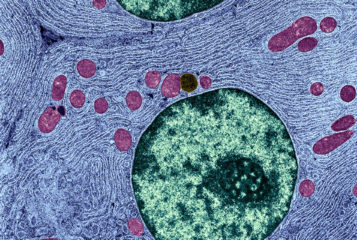Legalisation of mitochondrial donation in Australia: What comes next?
In this commentary, we consider the road to legalisation in Australia, the key aspects of this legislation, and some remaining unanswered questions...
.

by Karinne Ludlow and 1 others
In this commentary, we consider the road to legalisation in Australia, the key aspects of this legislation, and some remaining unanswered questions...

by Professor Vardit Ravitsky and 7 others
Non-invasive prenatal testing, a prenatal screening test analysing fetal DNA in a blood sample from the pregnant person, has become available in more than 60 countries since its introduction ten years ago...

Mitochondrial donation has seeded a growing literature in bioethics, law and the social sciences. This technology, which introduces third-party mitochondria to an embryo or oocyte, has contributed to many long-standing social and ethical questions...

Jane Fisher and Lyn Chitty highlight in BioNews 864 that it's been almost nine months since the UK National Screening Committee recommended an 'evaluative implementation of NIPT into the NHS's antenatal screening programme — a recommendation that still awaits ministerial decision...

by Professor Ainsley Newson and 1 others
In March, Sequenom revealed that its MaterniT21 non-invasive prenatal test has detected potential cancer in some pregnant women. This is a good thing, right? Women in the prime of their lives receiving information that may catch a cancer early. But, we suggest, it is not this simple. ...

Geneticist Razib Khan's decision to obtain the whole genome sequence of his partner's fetus in utero shows us that genomics is no longer a fantasy. While it would be a mistake to use this one example to condemn the entire practice of whole genome sequencing prior to birth, I will suggest here why we should look before we leap...

by Sascha Callaghan and 1 others
The story of the baby with Down's syndrome 'abandoned' in Thailand, which has dominated the news, illustrates how the international surrogacy industry has been booming...

Has the Human Genetics Commission (HGC)'s recent report on population-wide preconception genetic testing and screening convincingly demonstrated that this practice raises 'no specific ethical, legal or social principles' that would make population screening unacceptable?...

As highlighted in BioNews, in early April 2011 the UK's Human Genetics Commission (HGC) published a report supporting preconception genetic testing and screening (1). Preconception screening, which can be broadly described as identifying carriers of genetic mutations to inform reproductive decision-making for the person tested or his/her relatives, is well established in some jurisdictions but relatively unknown in the UK...

by Dr Zuzanna Deans and 1 others
Dr Phillipa Brice's accompanying commentary highlights how non-invasive testing of free fetal DNA (ffDNA) in pregnancy could transform women's experiences of antenatal screening and prenatal diagnosis. NIPD is already available for foetal sex, rhesus D blood type and some Mendelian conditions such as achondroplasia, with tests for aneuploidy detection and...
BioNews, published by the Progress Educational Trust (PET), provides news and comment on genetics, assisted conception, embryo/stem cell research and related areas.

